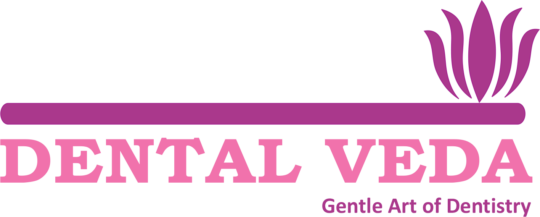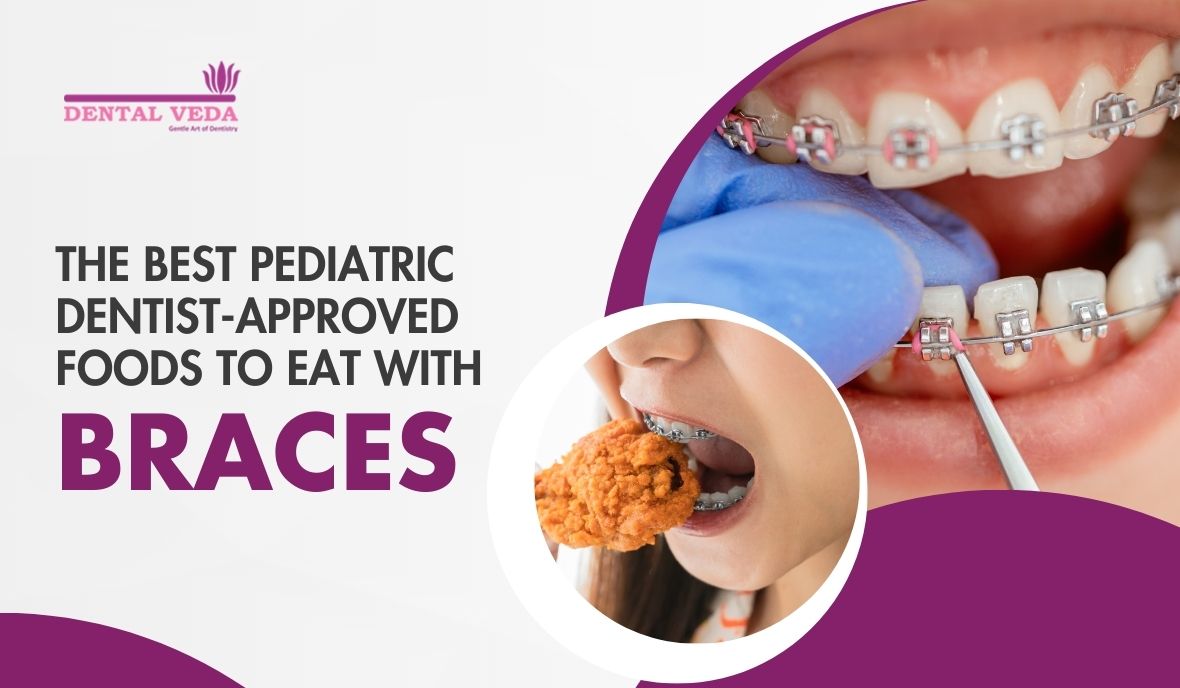Proper nutrition is crucial in supporting overall health, especially during orthodontic treatment. Children’s food choices provide the nutrients essential for dental health and a healthy smile. During orthodontic treatment, maintaining a balanced diet helps promote optimal oral health, facilitates the movement of teeth, and aids in the healing process.
Eating with braces can present unique challenges due to the presence of brackets, wires, and other orthodontic appliances. Foods that are hard, crunchy, sticky, or chewy can pose a threat of damaging braces or causing discomfort. That’s why children undergoing orthodontic treatment need to modify their diet, avoid certain foods, and adopt braces-friendly eating habits to ensure the success of their treatment.
To navigate the challenges of eating with braces, pediatric dentists in Gurgaon recommend specific foods that are gentle on braces, easy to chew, and unlikely to cause damage. These braces-friendly foods prioritize soft textures, minimal stickiness, and ease of consumption, allowing children to maintain proper nutrition while minimizing the risk of orthodontic complications.
The Best Pediatric Dentist-Approved Foods to Eat with Braces
Navigating your diet with braces can be challenging, but it doesn’t have to be boring or difficult. Here are some engaging and informative suggestions for soft, nutritious foods that are easy to eat and approved by pediatric dentists.
Soft and Easy-to-Eat Foods
Yogurt and Soft Cheese:
Yogurt and soft cheese are ideal for those with braces because they are smooth, easy to consume, and packed with calcium to fortify teeth. With its high protein content, Greek yogurt and cottage cheese are excellent options. Incorporating these into your diet helps maintain strong teeth and overall oral health.
Smoothies and Pureed Foods:
Smoothies and pureed foods are nutrient powerhouses and incredibly easy to consume. They allow for various ingredients, ensuring a balanced intake of vitamins and minerals. Suggested ingredients include fresh fruits like bananas and berries, vegetables such as spinach, and protein powders to enhance the nutritional profile.
Fruits and Vegetables
Soft Fruits:
Soft fruits are gentle on your braces and rich in essential vitamins and minerals. Examples include bananas, which are high in potassium; berries, loaded with antioxidants; and peaches, which offer a sweet, juicy treat. These fruits are easy to chew and digest, making them perfect for braces-wearers.
Cooked or Steamed Vegetables:
Cooking or steaming vegetables softens their texture, making them easier to eat without damaging braces. Carrots, broccoli, and spinach are excellent choices. They provide essential nutrients like vitamins A and C and iron, which support overall health and are crucial for growth and development.
Protein-Rich Foods
Soft Meats and Fish:
Soft meats and fish are excellent protein sources for growth and repair. Options like chicken, turkey, and salmon are tender and easy to chew. They provide vital nutrients, including omega-3 fatty acids (from fish), which support brain health and development.
Eggs
Eggs are incredibly versatile and rich in protein. They can be prepared in various ways, such as scrambled, boiled, or as an omelet, making them a staple for those with braces. Eggs also provide essential vitamins and minerals like vitamin D and choline, promoting overall health.
Grains and Carbohydrates
Soft Bread and Pasta:
Soft bread and pasta are great energy sources and easy to eat with braces. Whole grain bread and pasta are recommended as they provide fiber and essential nutrients. These foods are gentle on your braces, and support sustained energy levels throughout the day.
Oatmeal and Soft Cereals:
Oatmeal and soft cereals are excellent for breakfast and snacks. They are gentle on braces and high in fiber, which aids digestion. Plain oatmeal and low-sugar cereals are the best choices, ensuring you benefit without added sugars.
Dairy Products
Milk and Milk Products:
Due to their high calcium content, milk and milk products are critical for maintaining strong teeth. Whole milk and mozzarella are excellent options that are gentle on braces. Regular consumption supports bone health and dental strength.
Snacks and Treats
Soft Snacks:
Soft snacks are easy to eat and won’t damage your braces. Examples include applesauce, pudding, and soft granola bars. These snacks provide a quick energy boost and essential nutrients without the risk of harming your orthodontic appliances.
Braces-Friendly Desserts:
Indulging in desserts can still be safe for braces. Options like ice cream, gelatin, and custards are soft and satisfying, allowing you to enjoy sweet flavors without compromising the integrity of your braces.
Foods to Avoid
Certain foods have the potential to cause damage to braces by exerting excessive force or creating conditions that compromise the effectiveness of orthodontic gears. Understanding the types of foods to avoid is crucial for protecting braces and preventing orthodontic complications.
Foods that are excessively hard, crunchy, sticky, or chewy can risk braces by causing brackets to break or wires to bend. Additionally, foods with small, hard particles or sharp edges can get stuck between braces, leading to discomfort, irritation, and potential damage to teeth and gums.
Examples of Foods to Avoid During Orthodontic Treatment:
Chewy Candies: Chewy candies such as caramels, taffy, and gummy bears are notorious for sticking to braces and causing brackets to loosen or wires to break. Avoiding these sticky treats is essential for preserving the stability of braces and preventing orthodontic emergencies.
Hard Fruits and Vegetables (Apples, Carrots): Hard fruits and vegetables like apples, carrots, and raw celery can exert excessive force on braces and may cause brackets to detach or wires to bend. Opt for softer alternatives or cut hard fruits and vegetables into small, manageable pieces to minimize the risk of damage.
Nuts and Seeds: Nuts and seeds are hard and crunchy foods that can be difficult to chew and damage braces. Avoid whole nuts and seeds, and opt for nut butter or seed spreads.
Tips for Eating with Braces
Brush and floss regularly: Maintain good oral hygiene by brushing your teeth after every meal and flossing daily to remove food particles and plaque buildup around the braces.
Rinse with water: After eating, it’s crucial to rinse your mouth with water or an antiseptic mouthwash. This practice helps dislodge any residual food particles that may be trapped in your braces, ensuring your oral cavity remains clean and reducing the risk of plaque buildup and dental issues.
Avoid sugary and acidic foods: Limit consumption of sugary and acidic foods and beverages to prevent tooth decay and demineralization, which can occur more easily with braces.
Use orthodontic wax: To prevent irritation caused by brackets or wires, apply orthodontic wax to any components that rub against the inner lining of your cheeks or lips during meals. This protective barrier helps ensure a more comfortable eating experience by minimizing friction and preventing sores.
Schedule regular check-ups: Schedule routine appointments with your pediatric dentist or best orthodontist in Gurgaon to adjust and monitor your teeth’s progress.
Conclusion
Pediatric dentist-approved foods for braces offer numerous benefits, including minimizing the risk of damage to braces, promoting proper nutrition, and supporting optimal oral health during orthodontic treatment.
So, are you looking for a pediatric dentist in Gurgaon? Contact Dental Veda today; we are the best pediatric dentist in Gurgaon.


